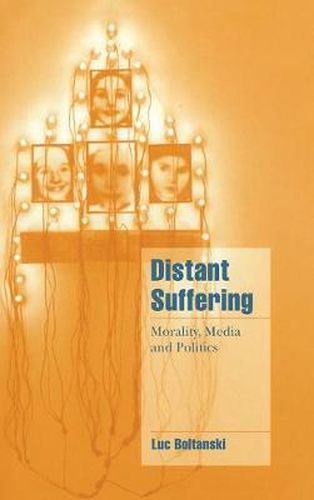Readings Newsletter
Become a Readings Member to make your shopping experience even easier.
Sign in or sign up for free!
You’re not far away from qualifying for FREE standard shipping within Australia
You’ve qualified for FREE standard shipping within Australia
The cart is loading…






Distant Suffering examines the moral and political implications for a spectator of the distant suffering of others as presented through the media. What are the morally acceptable responses to the sight of suffering on television, for example, when the viewer cannot act directly to affect the circumstances in which the suffering takes place? Luc Boltanski argues that spectators can actively involve themselves and others by speaking about what they have seen and how they were affected by it. Developing ideas in Adam Smith’s moral theory, he examines three rhetorical ‘topics’ available for the expression of the spectator’s response to suffering: the topics of denunciation and of sentiment and the aesthetic topic. The book concludes with a discussion of a ‘crisis of pity’ in relation to modern forms of humanitarianism. A possible way out of this crisis is suggested which involves an emphasis and focus on present suffering.
$9.00 standard shipping within Australia
FREE standard shipping within Australia for orders over $100.00
Express & International shipping calculated at checkout
Stock availability can be subject to change without notice. We recommend calling the shop or contacting our online team to check availability of low stock items. Please see our Shopping Online page for more details.
Distant Suffering examines the moral and political implications for a spectator of the distant suffering of others as presented through the media. What are the morally acceptable responses to the sight of suffering on television, for example, when the viewer cannot act directly to affect the circumstances in which the suffering takes place? Luc Boltanski argues that spectators can actively involve themselves and others by speaking about what they have seen and how they were affected by it. Developing ideas in Adam Smith’s moral theory, he examines three rhetorical ‘topics’ available for the expression of the spectator’s response to suffering: the topics of denunciation and of sentiment and the aesthetic topic. The book concludes with a discussion of a ‘crisis of pity’ in relation to modern forms of humanitarianism. A possible way out of this crisis is suggested which involves an emphasis and focus on present suffering.